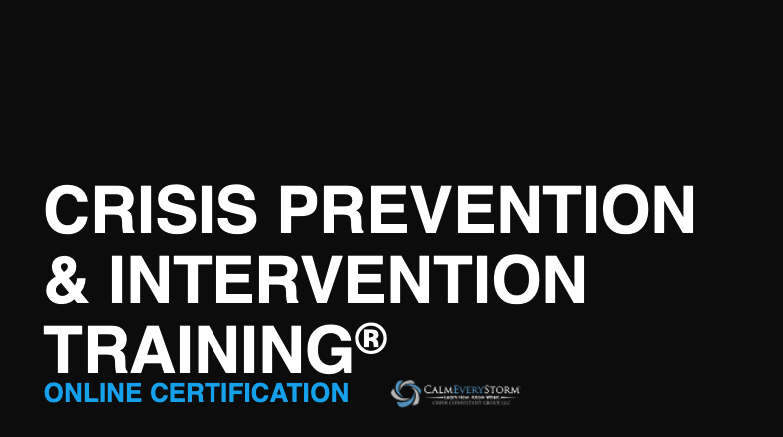
Nurses are the unsung heroes of the healthcare industry, tirelessly working to ensure the well-being of their patients. However, in the process of caring for others, they often neglect their own mental health. The demanding and emotionally charged nature of nursing can lead to burnout, stress, and other mental health issues. To address this pressing concern, mental health first aid for nurses has emerged as a critical aspect of healthcare training. In this article, we will explore the concept of mental health first aid for nurses and provide a comprehensive understanding of its significance in the nursing profession. Are you looking for crisis prevention intervention training for nurses near me?
- Mental Health First Aid: Mental Health First Aid (MHFA) is a training program designed to equip individuals with the skills and knowledge to provide initial assistance to someone experiencing a mental health crisis.
- Nurse Resilience: Nurse resilience refers to a nurse’s ability to adapt to and cope with the challenges and stressors encountered in their profession, maintaining mental and emotional well-being.
- Compassion Fatigue: Compassion fatigue is the emotional and physical exhaustion that can result from providing care to individuals who are experiencing suffering or trauma.
- Stress Management: Stress management techniques help nurses identify and cope with stressors effectively, reducing the risk of burnout.
- Self-Care: Self-care involves activities and practices that nurses engage in to promote their physical and mental well-being, such as exercise, mindfulness, and seeking support.
- Empathy: Empathy is the ability to understand and share the feelings of another person, a crucial skill for nurses when interacting with patients experiencing mental health issues.
- Psychological First Aid: Psychological First Aid is an approach to providing initial support to individuals in crisis, with a focus on enhancing their psychological well-being.
- Resilience Training: Resilience training programs help nurses build mental and emotional resilience to better cope with the demands of their profession.
- Mental Health Promotion: Mental health promotion involves activities aimed at enhancing mental well-being and preventing mental health issues among nurses and their patients.
- Burnout Prevention: Burnout prevention strategies help nurses identify and manage the signs of burnout, ensuring long-term mental health.
- Crisis Intervention: Crisis intervention techniques enable nurses to provide immediate support to individuals facing acute mental health crises.
- Emotional Intelligence: Emotional intelligence encompasses the ability to recognize, understand, and manage one’s own emotions and the emotions of others, vital for effective nursing care.
- Trauma-Informed Care: Trauma-informed care is an approach that recognizes the prevalence of trauma in patients and seeks to provide care that is sensitive to their past experiences.
- Mental Health Stigma: Mental health stigma refers to the negative stereotypes and discrimination that can be associated with mental illness, often leading to reluctance in seeking help.
- Cultural Competence: Cultural competence involves understanding and respecting the cultural beliefs and practices of patients, especially important in mental health care.
- Anxiety Disorders: Anxiety disorders are a group of mental health conditions characterized by excessive worry, fear, and physical symptoms such as palpitations and sweating.
- Depressive Disorders: Depressive disorders, including major depressive disorder, are characterized by persistent sadness, loss of interest, and other symptoms affecting daily functioning.
- Substance Abuse: Substance abuse involves the harmful or hazardous use of psychoactive substances, often leading to mental health issues.
- Post-Traumatic Stress Disorder (PTSD): PTSD is a mental health condition that can develop after exposure to a traumatic event, leading to symptoms like flashbacks and nightmares.
- Suicide Prevention: Suicide prevention strategies and techniques are crucial for nurses to recognize warning signs and provide immediate help to individuals at risk of suicide.
Related Entities:
- American Psychiatric Nurses Association (APNA): APNA is a professional organization that provides resources and support for psychiatric and mental health nurses.
- National Alliance on Mental Illness (NAMI): NAMI is a grassroots organization dedicated to improving the lives of individuals living with mental illness, including resources for nurses.
- Mental Health America (MHA): MHA is a leading advocacy organization focused on addressing mental health issues in the United States.
- SAMHSA: The Substance Abuse and Mental Health Services Administration (SAMHSA) is a government agency that provides resources and funding for mental health services.
- Psychiatric-Mental Health Nursing Certification: Certification in psychiatric-mental health nursing demonstrates a nurse’s expertise in caring for individuals with mental health issues.
- Employee Assistance Programs (EAP): EAPs are workplace programs that offer counseling and support services to employees, including nurses.
- Mental Health Crisis Hotlines: These hotlines provide immediate support to individuals in crisis and are important resources for nurses to be aware of.
- Telehealth Services: Telehealth allows nurses to provide mental health support remotely, increasing access to care.
- Psychiatric Medications: Understanding psychiatric medications is essential for nurses caring for patients with mental health disorders.
- Patient-Centered Care: Patient-centered care emphasizes involving patients in their treatment decisions, especially in mental health care planning.
- Peer Support Groups: Peer support groups bring together individuals with similar mental health challenges to provide mutual support and encouragement.
- Mental Health Legislation: Knowledge of mental health legislation is crucial for nurses to advocate for their patients’ rights and access to care.
Conclusion
Mental health first aid for nurses is a vital component of their training and professional development. By equipping nurses with the skills to recognize and address mental health issues, we can promote better mental well-being for both healthcare providers and patients. As the nursing profession continues to evolve, prioritizing mental health is not just a choice but a necessity to ensure compassionate and effective care.